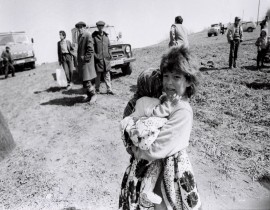Politicon.co
Digital Diplomacy as a Foreign Policy Tool: The Case of Azerbaijan
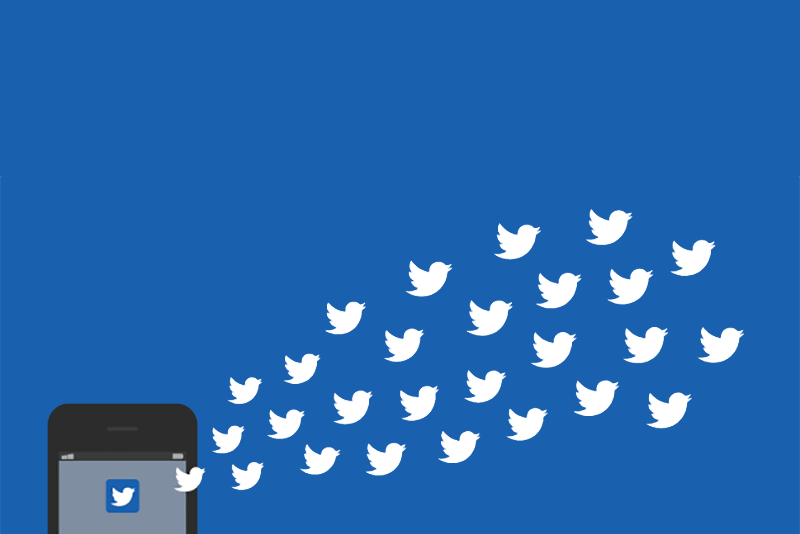
Diplomacy and International Affairs — as the term implies—have revolved largely around the interactions between states, and soft power, along with forceful measures, has been the cornerstone of conducting that connectedness. However, it is important to stress that diplomacy and international affairs have always surpassed states. Hedley Bull oncedefined “diplomacy” as “the conduct of relations between states and other entities with standing in world politics by official agents and by peaceful means.” In the recent 20-30 years, the Internet, has profoundly affected the nature of International Relations by constituting a quantum leap in people’s ability to interact one-to-one and one-to-many. The broad use of the Internet, specifically – social media, has shortened distances greatly, and it then comes as no surprise that there is a massive flow of information generating certain difficulties in separating global from local ones. Social media tools have enabled ordinary citizens to actively participate in foreign-policy decision-making processes and implementations through the exchange of ideas between them and state officials on social media platforms such as Facebook and Twitter . Thus it would not be an exaggeration to charge that today’s foreign policy is as much about digital citizenship as it is about digital government and digital economy as well as that it is as much about local communities as it is about the international ones . Although more complex and interconnected world of the Internet Age has contributed to a way forward, these developments have been adjusted by the foreign policy community rather inconsistently and slowly as for some it is still a Pandora’s Box. There is some fear of the unknown and possible failures, and there is confusion over what e-Diplomacy is and how pervasive its effects could be, as well. For instance, The UK Foreign and Commonwealth Office characterizes Digital Diplomacy as “solving foreign policy problems using the internet”, meanwhile, the US State Department defines the term as “21st Century Statecraft”. Yettheir Canadian counterparts call this “Open Policy.”
The Case of Azerbaijan
Azerbaijan, too, utilizes digital diplomacy as an important tool in its foreign policy to deliver and receive communication. The government started to use social media and fulfill its public affairs and strategic communications function through the establishment of a social media presence, namely Twitter Accounts and Facebook Pages. To circulate its messages widely through the press and the public, several state institutions,including Embassies and other diplomatic offices, have been using Twiplomacy – the term also known as “Hashtag Diplomacy” – serving officials for conducting diplomatic outreach and public diplomacy . Notwithstanding the growing trend towards the use of social media among the policymakers in Azerbaijan, unfortunately, only some of the diplomatic missions of Azerbaijan serving abroad actively and officially run Twitter accounts (Nearly 31 Facebook Pages, and 69 Twitter accounts) . Besides, the maintenance and impact of most of these accounts are less than impressive. Leading officials at the foreign missions are not well-versed in the use of the Internet, much less social media, and there is a lack of initiatives to hold trainings to expand their understanding thereof. The challenges are not limited to the quantity of effective social media users among the top officials; hardly do weobservepublic servicemen publishing quality statements on digital platforms. Though most of the profiles are regularly updated, the content of “tweets” and Facebook posts consists mostly of hyperlinks of articles usually from the state agency “AzerTaj”, or other websites such as Trend.az and Day.az.Put simply, in the digital age, original, curated, or personalized contents possess a variety of platforms, stakeholders, and ways of being consumed and repurposed. Therefore, sometimes it becomes hard to distinguishauthentic and reliable content from propaganda-like pieces. Thus it is crucial to come up with quality information and enable the buyers of information to shop smart as there are many low-grade products available. Translating information into digital excellence rather than digital garbage should bear utmost importancewhile portraying real facts of the years-long, yet not so widely publicized, Nagorno-Karabakh conflict and the Khojaly Genocide from Azerbaijan’s perspective.
Policy Recommendations
For a country like Azerbaijan who seeks for a betterinternational awareness, to employ digital mechanism in this pursuit, as well as to evaluate different shapes and forms of innovation, especially when it comes to its application in international affairs and foreignpolicymaking should be of great importance. In advancing national goals through digital diplomacy, it is essential to maintain transparency which could be a precursor to trust in the eyes of both local and global social media users. As noted by Charles Firestone “if officials are made accountable – people can believe more of what’s happening as they can really see what’s happening” and by eAlec Ross, U.S. State Department Social Media Adviser, “today if somebody is lying about in the media.. we now have the tools to get the real facts out there” ,digital diplomacy literally provides grounds for the officials as well to show their transparency and thus enhance trust through this. Rather practical advice to embrace digital diplomacy would be following the United Kingdom’s Foreign and Commonwealth Office’s method of establishing an Office of Digital Diplomacy which is involved in a range of digital diplomacy activities within the Ministry of Foreign Affairs of Azerbaijan. Another good case in point could be pursuing an online communication strategy along the lines of the one promotd by the Government of Sweden which ultimately made its foreign minister Carl Bildt “the best-connected Twitter leader” world-wide due primarily to the quantity of retweets his tweets got and his quick responses to a wide of range issues. Thus this ought to come as no surprise thatby continuously using the advantages today’s innovative platforms offer, Azerbaijan could be expected to fix its position as a country to be reckoned with, enlarging its activities from regional to global aspirations.
Works Cited
Books
- Earl, and Kimport., “Digitally Enabled Social Change: Activism in the Internet Age” Cambridge, MA: MIT Press.
- Kaplan, M. Andreas &Haenlein, Michael., “Users of the world Unite! The challenges and opportunities of Social Media” Business Horizons (2010), 53, 59-68.
- Nicole B. Ellison, ,&Danah M. Boyd. “Sociality through Social Network Sites.” In The Oxford Handbook of Internet Studies, edited by W. H. Dutton, 2013. 151–172. Oxford, UK.
- Sandre, Andres., “Digital Diplomacy: Conversations On Innovation in Foreign Policy” Rowman& Littlefield, Maryland 20706, 2015
- Sandre, Andres., “The Arab Spring of Diplomacy: A conversation with Charles Firestone, Executive Director, Communications and Society Program, The Aspen Institute” Rowman& Littlefield, Maryland 20706, 2015.
- W. Lance Bennett and Alexandra Segerberg. 2013. The Logic of Connective Action: Digital Media and the Personalization of Contentious Politics. Cambridge, UK: Cambridge University Press
Online Sources
- Brandon Gutman, “Sears explains its success In content marketing,” Forbes, 18 May 2012. http://www.forbes.com/sites/marketshare/2012/05/18/sears-explains-their-success-in- content- marketing/?utm_source=dlvr.it&utm_medium=statusnet
- Ethan Zuckerman, “The First Twitter Revolution?,” Foreign Policy, January 14, 2011.
- http://www.foreignpolicy.com/articles/2011/01/14/the_first_twitter_revolution
- Facebook stats in Azerbaijan - Governmental. (2015). http://www.socialbakers.com/statistics/facebook/pages/total/azerbaijan/society/governmental/
- Keleman, Michele., “Twitter Diplomacy: State Department 2.0”, National Public Radio
- http://www.npr.org/sections/alltechconsidered/2012/02/21/147207004/twitter-diplomacy state-department-2-0
- Philip Seib, “CENTCOM’s Digital Engagement Team tries to counter extremists,” University of Southern California Center on Public Diplomacy Blog
- http://uscpublicdiplomacy.org/index.php/newswire/cpdblog_detail/centcoms_digital_enga gem ent_tries_to_counter_extremists/
- Twitter statistics in Azerbaijan - Governmental. (2015). http://www.socialbakers.com/statistics/twitter/profiles/society/governmental/
![]()
- TAGS :
- Azerbaijan
- digital
- diplomacy
- TOPICS :
- Foreign policy
- REGIONS :
- Russia and CIS


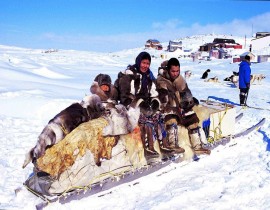
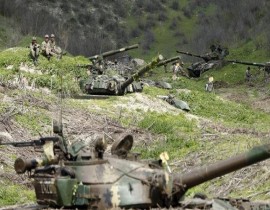

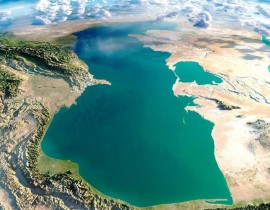
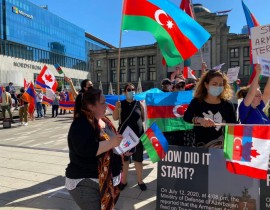
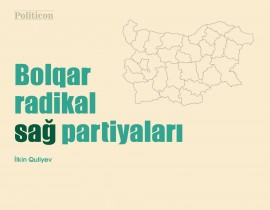
jpg-1599133320.jpg)
